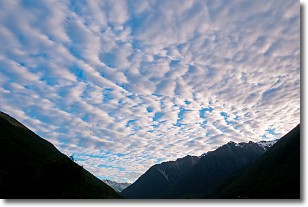Weather Alert in South Carolina
Flash Flood Warning issued August 22 at 6:47PM EDT until August 22 at 8:15PM EDT by NWS Charleston SC
AREAS AFFECTED: Berkeley, SC; Charleston, SC; Dorchester, SC
DESCRIPTION: At 647 PM EDT, emergency management officials reported flash flooding is still ongoing across much of the Charleston Metro Area. Many roads are reported closed and flooded across Downtown Charleston, North Charleston and surrounding communities. Radar shows bands of moderate to locally heavy rain expanding across the Metro area again. This will worsen ongoing flash flooding, especially as an elevated high tide approaches. As much as 3 to 6 inches have fallen so far today. An additional inch could fall. Tides in the Charleston Harbor are expected to reach between 7.7 and 7.9 ft MLLW, which is well into the moderate flood range. With drainage systems full of saltwater, any heavy rainfall that falls will immediately result in additional flooding. In addition, people along Church Creek in West Ashley should carefully monitor water levels this evening. Flooding could develop in neighborhoods near the creek, including areas along Winners Circle. HAZARD...Life threatening flash flooding. Thunderstorms producing flash flooding. SOURCE...Emergency management reported. IMPACT...Life threatening flash flooding of creeks and streams, urban areas, highways, streets and underpasses. Some locations that will experience flash flooding include... North Charleston, Mount Pleasant, Goose Creek, Hanahan, West Ashley, Downtown Charleston, I-26/I-526 Interchange, James Island, Johns Island and Daniel Island. This includes the following highways... I-26 between mile markers 208 and 221. I-526 between mile markers 11 and 29.
INSTRUCTION: Turn around, don't drown when encountering flooded roads. Most flood deaths occur in vehicles. Report flooding directly to the Charleston National Weather Service at 1-888-383-2024 or email your reports to nws.charlestonsc@noaa.gov.
Want more detail? Get the Complete 7 Day and Night Detailed Forecast!
Current U.S. National Radar--Current
The Current National Weather Radar is shown below with a UTC Time (subtract 5 hours from UTC to get Eastern Time).

National Weather Forecast--Current
The Current National Weather Forecast and National Weather Map are shown below.

National Weather Forecast for Tomorrow
Tomorrow National Weather Forecast and Tomorrow National Weather Map are show below.

North America Water Vapor (Moisture)
This map shows recent moisture content over North America. Bright and colored areas show high moisture (ie, clouds); brown indicates very little moisture present; black indicates no moisture.

Weather Topic: What are Stratus Clouds?
Home - Education - Cloud Types - Stratus Clouds
 Next Topic: Wall Clouds
Next Topic: Wall Clouds
Stratus clouds are similar to altostratus clouds, but form at a
lower altitude and are identified by their fog-like appearance, lacking the
distinguishing features of most clouds.
Stratus clouds are wider than most clouds, and their base has a smooth, uniform
look which is lighter in color than a nimbostratus cloud.
The presence of a stratus cloud indicates the possibility of minor precipitation,
such as drizzle, but heavier precipitation does not typically arrive in the form
of a stratus cloud.
Next Topic: Wall Clouds
Weather Topic: What are Altocumulus Clouds?
Home - Education - Cloud Types - Altocumulus Clouds
 Next Topic: Altostratus Clouds
Next Topic: Altostratus Clouds
Similar to cirrocumulus clouds, altocumulus clouds are
characterized by cloud patches. They are distinguished by larger cloudlets
than cirrocumulus clouds but are still smaller than stratocumulus clouds.
Altocumulus clouds most commonly form in middle altitudes (between 2 and 5 km)
and may resemble, at times, the shape of a flying saucer.
These uncommon formations, called altocumulus lenticularis, are created by uplift
in the atmosphere and are most often seen in close proximity to mountains.
Next Topic: Altostratus Clouds
Current conditions powered by WeatherAPI.com




